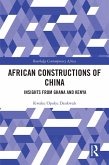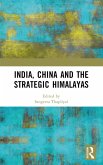China and India have long been central to the world economy. Two and a half centuries ago, they contributed 50 percent of the world output; after suffering a decline thereafter, their share fell to a paltry 9 percent in 1950 but has since resurged to over 25 percent today. Their growth and inequality experiences have had strikingly similar trajectories following India's independence (1947) and the Chinese revolution (1949). This book offers novel insights by meticulously analyzing the Chinese and Indian inequality stories (1950-2010) through a class lens. Moreover, it locates their inequality stories within the larger contexts of Asian and global capitalism. Vakulabharanam demonstrates that the mutual interconnectedness between Chinese and Indian growth and inequality dynamics and the transformation and evolution of global capitalism is key to understanding the within-country inequality dynamics in both countries. The book thus offers a new framework on economic development and inequality that builds on and adds to the insights of Kuznets and Piketty.
Dieser Download kann aus rechtlichen Gründen nur mit Rechnungsadresse in A, B, BG, CY, CZ, D, DK, EW, E, FIN, F, GR, HR, H, IRL, I, LT, L, LR, M, NL, PL, P, R, S, SLO, SK ausgeliefert werden.









